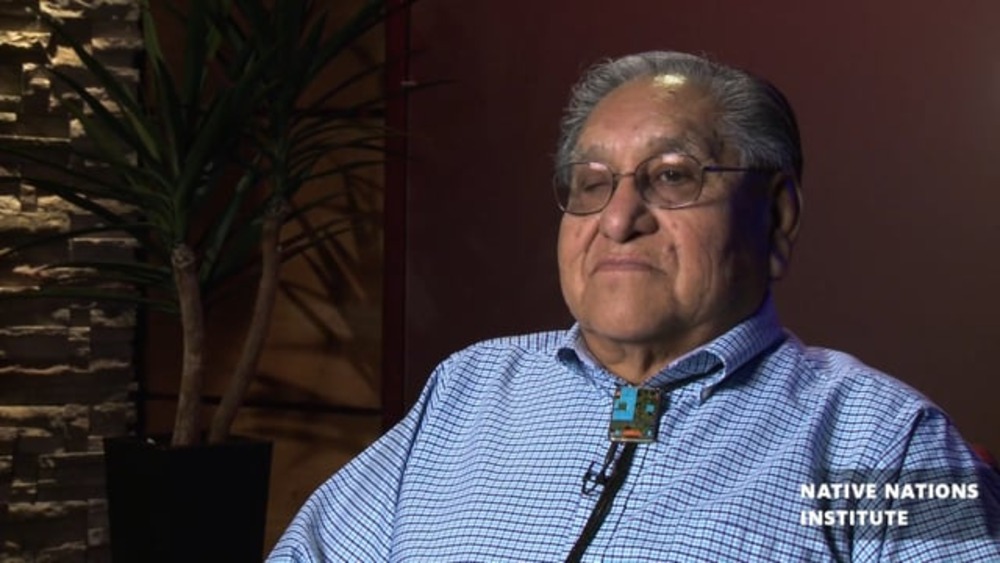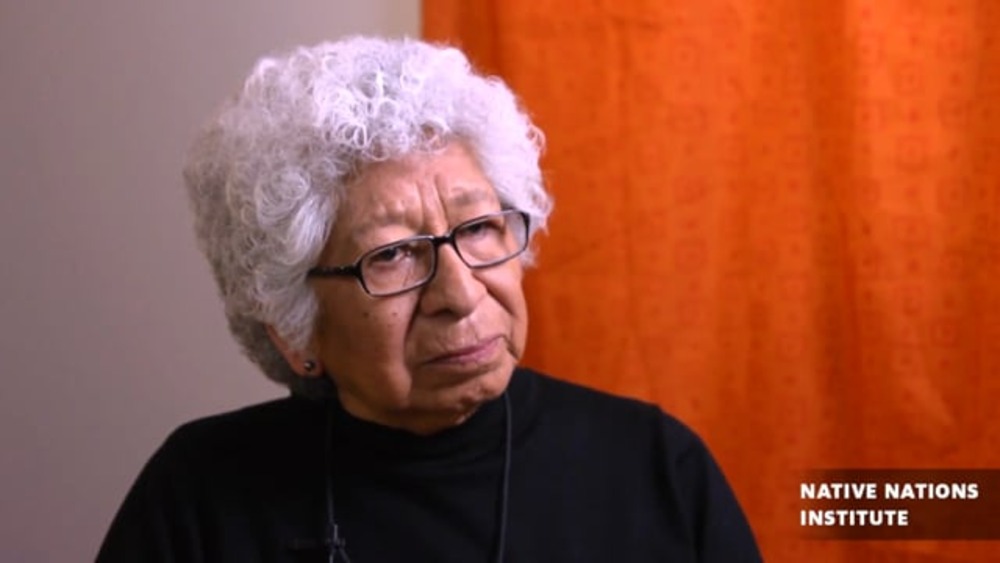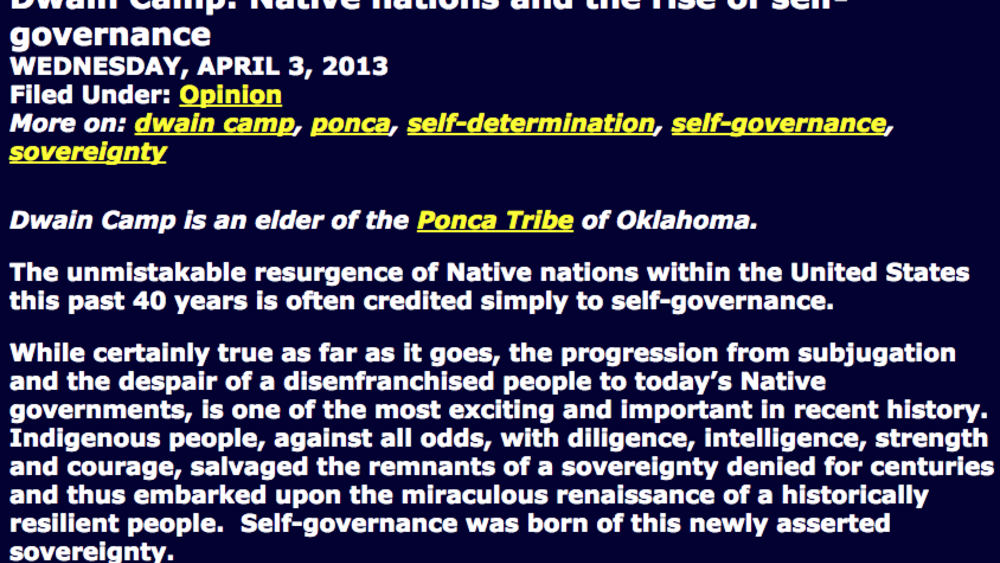In this highlight from the presentation "Key Things a Constitution Should Address: 'Who Has Responsibility for What?'," NNI's Stephen Cornell provides an overview of the fundamental questions that Native nations must ask themselves as they reclaim control over and then redesign their governance systems.
Additional Information
Cornell, Stephen. "The Task of Reclaiming Self-Governance (Presentation Highlight)." Tribal Constitutions seminar. Native Nations Institute for Leadership, Management and Policy, University of Arizona. Tucson, Arizona. April 3, 2013. Presentation highlight.
Transcript
"When you think about governing yourself as a nation, reclaiming self-government as an Indigenous right, an Indigenous tradition, an Indigenous practice, what does it mean? And you could probably add a whole lot of stuff to this list, this is not a complete list, but it means things like this: you've got to make law. Under what law will your people live? Arizona law, U.S. law, you may not have choices on some of that. You live under U.S. law, but what about your own law? And if you think about it, how do you make that law and how do you enforce it? How do you make decisions as a people? The [U.S.] Supreme Court releases an opinion and suddenly your world changes and you've got to react. How's that going to happen? Who does that? You're approached by a Fortune 500 corporation that says, 'We want to partner with you to do this on your land.' Okay, you need a decision. Who makes that decision? Or a family comes to you and says, 'We've got a problem with kids and we need the support of the tribe,' and you've got a decision to make. So you've got to think about who's making those decisions.
Disputes. I think some people who are non-Indigenous have this sort of harmonious idea of Indigenous communities as places where no one ever disagrees with anybody, all harmony and consensus and so forth. Well, we're all human beings; life isn't like that, we have disagreements. And the question is what do you do when you disagree? Do you let disagreements rip the place apart and become the issue in the next election so that we can throw those guys out because they're nuts and put our people in? Or do you sit down and figure out a way to resolve the dispute that lets the nation keep moving forward, keep pursuing its goals, not get distracted, but also deals with if we've got a real issue here let's deal with it. So how do you do that? Who does that? You've got to interact productively with other governments and they're not necessarily going to sit there and say, 'Well, we'll do whatever you want.' No, they're going to want to sit down and negotiate and sometimes they're going to be tough and they're going to be brutal and you've got to figure out, what are we willing to compromise on? And where do we draw the line? And how do we make sure that 10 years from now we can still work with these guys because neither of us is going anywhere? We're going to have to. Facilitate and implement a strategic vision, thinking about what kind of nation you want to be seven generations down the road or even five years down the road. What kind of community do you want when your grandchildren are your age? And then there's just the daily needs of your citizens that somehow the nation has to try to address. This is all governance stuff. It's what we mean when we talk about self-government. It's saying, 'From now on, we are going to be responsible for those things just as we were once long ago and we're going to reclaim all of that.' So then the question comes, okay, how do you do it and who does what?"



